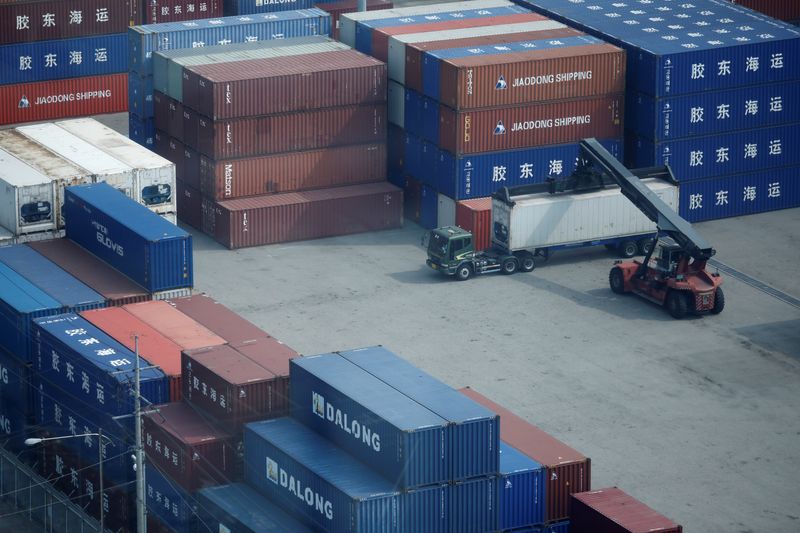SEOUL (Reuters) - South Korea's export growth slowed for a fourth-straight month in November, to the weakest level in 14 months, as shipments to the United States and China fell amid tariff uncertainty, trade data showed on Sunday.
Exports out of Asia's fourth-largest economy rose 1.4% in November from a year earlier, after a gain of 4.6% in October, to $56.35 billion.
It was the 14th-straight month exports rose in annual terms but the slowest rate for the sequence, also missing a median forecast of a 2.8% increase tipped in a Reuters poll of economists.
Last month, U.S. President-elect Donald Trump pledged to impose a 25% tariff on imports from Canada and Mexico, which is expected to affect South Korean firms as well, and "an additional 10% tariff, above any additional tariffs" on China, South Korea's biggest trading partner.
Shipments to the United States fell 5.1%, their first decline since July 2023, while those to China were down 0.6%, after eight consecutive months of gains. Exports to the European Union were up 0.9%.
Sales of semiconductors rose 30.8%, the weakest growth in 11 months, while car sales fell 13.6%, their biggest drop since June 2020, due to strikes at major auto parts makers and shipping delays amid bad weather.
"The government will team up with the private sector and utilise all available resources to export even a dollar more by the end of the year," said Trade Minister Ahn Duk-geun.

Imports fell 2.4% to $50.74 billion, compared with gains of 1.7% in the previous month and 0.4% expected by economists. It was the first decline in five months.
The country posted a trade surplus of $5.61 billion in November, wider than a $3.15-billion surplus in October.